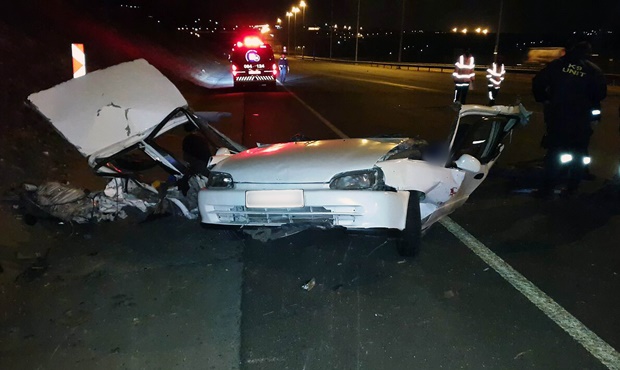Challenges faced by musicians

FredZindi Music
It was a day after Jah Prayzah’s album launch on May 22 that I was confronted by a vendor with a bag full of CDs and he said to me: “Mudhara, I have ‘Jerusarema’ the latest CD from JahPrayzah for only $1”
The previous night, I had bought the CD at the launch for $10.
I gave this young man a lecture on how he was reaping where he did not sow and how he was prejudicing the artiste who had spent a lot of money rehearsing with the band, recording and launching the album.
His response was, “Jah Prayzah drives a Mercedes Benz. I don’t. If I don’t do what I am doing, I will die from hunger. I hear Chiyangwa gave him $27 000 for the CD, so what is $1 to him?”
Straight away, I knew it was a war I was not going to win with this young vendor. I felt helpless and left.
I just wish the authorities could impose stiffer penalties against these vendors to stop such practices. Through music piracy, these vendors are killing the music industry.
In musical terms, a pirate is one who infringes another person’s copyright or other business rights. The term is also extended to those who broadcast music without official authorization (such as those who operate pirate radio stations).
What we are most concerned about here is the unauthorized duplication of one’s original recording for a commercial gain without the consent rights of the owner eg pirated copies of compact discs (CDs), audio-cassettes, DVDs and videos.
If the recording is sold without the permission of the composer or the recording is copied and packed to resemble the original as closely as possible in order to mislead the consumer into believing that they are buying the original product, that recording is often referred to as ‘counterfeit’.
There are several underground operators specialising in producing fake recorded music in the form of CDs and cassettes and selling these to unsuspecting consumers.
There are also those who make business using CD writers by simply buying blank CD-Rs and then copy any music they want or which they are asked to copy for a fee. This undermines the earning capacity of the originators of this music.
There is also the advent of internet piracy which has become fashionable. Internet piracy involves the compressing of music, posting and transmitting it globally via the internet without the authorization or payments of any royalties to those who invested in the creation of the project. The digital age has brought about software and hardware which enable consumers of music to download it freely through the internet. Efforts put in place by groups such as Digital Rights Management (DRM) have failed to assist the artist since the DRM movement is more concerned about enriching the software and hardware companies rather that the artistes through the sale of technology which enables the consumer to download music. Sources have revealed that on-line music piracy is responsible for 2.6 billion downloads of copyrighted music files every month through the sale of software programmes such aKaza A and Grokster. It is estimated that some 278 million people are now signed up to participate in on-line music piracy using Kaza A.
There is no doubt that music piracy affects both record companies and their artistes. It is reported that online music piracy alone has caused some record stores sales to drop by 20 percent every year.
Over 2,6 billion downloads of copyrighted music files have been reported worldwide on a monthly basis. Because music piracy continues to harm the industry, it means that record companies have reduced income and the artistes have very little or no royalties at all. New Zim dancehall artistes in Zimbabwe such as Killer T, Kinnah, SehCalaz, Soul Jah Love,Tocky Vybes, Ricky Fire, Shinsoman, Ras Pompey and Lady Squanda do not make much money from record sales as most of their material is pirated.
Consumers who purchase pirated copies of music end up with inferior quality products and if the sound quality is poor, they cannot exchange or ask for refunds for copies bought on the streets.
At the same time retail shops cannot compete with those selling the product at low prices. Owners of record stores, CD and cassette plants also lose out. Consequently the government also loses out as there is no revenue in the form of income tax coming from legitimate recording business – and this does not assist our fledgling economy in any way. Metro Studios have resorted to competing with the pirates by introducing a $1 cheaper version of original CDs. This comes without the hard plastic CD jacket and sometimes without the inlay.
Without the full support of the authorities, it has become difficult to fight music piracy. The best method of fighting against music piracy is through education.
An appeal to people’s consciences is the best way to deal with piracy. Otherwise with the increase in technological knowledge by the pirates who can download music from the likes of You Tube, iTunes and Facebook, not much can be done to stop the stealing of music. The law enforcers might come and arrest those involved, but the limited fines imposed are not much of a deterrent to many pirates.
A lot of people in our society do not know that intellectual property is as good as other forms of property such as gold, diamonds, furniture, cars and aeroplanes.
When someone gets up at midnight to compose a song, he is as good as someone who gets up every morning to go and work in a gold mine. Therefore he must also be rewarded for his work. Music piracy is harmful to the work of everyone involved.
If we love music and want to support its growth and development, then it is essential that we comply with laid down rules and regulations by buying original music copies.
When one buys pirated music, he or she is creating a market for criminals and when one copies music on a CD or cassette, he or she is promoting piracy. The creativity of all the people involved in the process of creating a song should never be taken for granted as this could be someone’s only means of livelihood.
In 2009, ZIMURA launched a CD aimed at raising awareness and combating music piracy. Artistes who included Emmanuel Thomas and his wife, Hope Masike, Willis Watafi, Joyce Cemente, First Farai, Sulumani Chimbetu, Brian Nananga, Sebede, AlexioKawara Sebastian Magacha, Busi Ncube and Andrew Mamvura wrote songs for the album entitled ‘Stop It’. Street Anti-Piracy demonstrations were also held, but all this came to naught.
Apart from copying of CDs there is another challenge experienced by music promoters. Quite often when there are international concerts in Harare, there is the problem of fake tickets being sold. The promoter loses a substantial amount of money as a result of these ticket touts.
Tickets are often photocopied by ticket touts who purchase one ticket and make several copies of the same through electronic devices. It is very common for someone to buy one genuine ticket then go to reproduce it by means of scanning, photocopying or even redesigning using the exact same design.
Sometimes if a promoter uses unregistered or unprofessional printers or designers to make the tickets, it can be these same people who will reproduce the tickets and sell them without the knowledge of the owner of the event. When this happens, a promoter risks running a financial disaster because they will attract ticket sales that are lower than expected.
This happened during the Real Deal show which featured Akon and Sean Paul in 2010.
There were over 40 000 people in the National Sports Stadium but only 1800 tickets were accounted for in monetary terms. A lot of money was lost by the promoter.
Fake ticket sales are difficult to avoid as this crime can be committed by anyone who would have bought just one ticket, or even the designer of the ticket, or the printer.
In other instances, one of the organisers involved in the promotion of the event can go behind the other promoters and reproduce their own tickets too. However, a wise promoter can implement measures that reduce the risk of fake ticket sales.
They can, for instance make use of professional, reputable and legally registered service providers for designing and printing and use scanners or other devices for detecting fake tickets.
In South Africa, they now use compu-ticket where a machine device will not let you into the venue until it detects that you have a genuine ticket. This is something worth investing in.
◆ Feedback: [email protected]










Comments